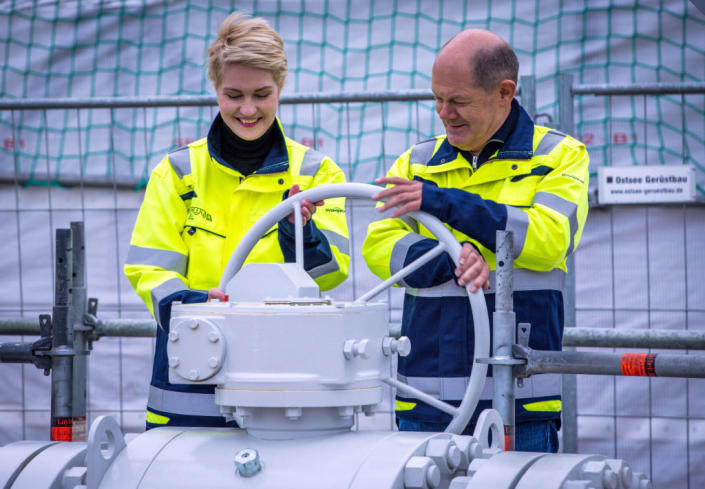Minister: Russian gas transit through Ukraine could end by 2024

Herman Halushchenko, the Energy Minister, informed the Financial Times on June 22 that it seems improbable for Ukraine and Russia to extend their gas transit agreement in the coming year.

In 2019, Kyiv made a deal with Gazprom, a state-owned gas provider from Russia, that lasts for five years. Halushchenko expressed that it would be hard to consider revisiting the agreement due to the significant invasion by Russia that occurred in 2022.
According to the Financial Times, the pipeline is among the limited options available for Russia to transit its gas towards the west, responsible for providing 5% of Europe's complete gas imports.
With the interruption of gas transit through Ukraine, TurkStream is now the sole pipeline for Russia to supply gas to Europe.
From the previous year, Moscow began to restrict its gas exports to the EU in order to increase the prices and weaken backing for Ukraine.
Countries in Europe have initiated efforts to vary their suppliers. As an illustration, they're now purchasing liquified natural gas (LNG) from suppliers in the United States or Qatar.
In 2021, the EU obtained almost half of its gas imports from Russia. However, by the conclusion of 2022, only 13% of the EU's gas imports came from Russia.

During the month of May, the G7 and EU declared that they will prevent the import of gas from Russia using the routes where Moscow has previously reduced the delivery of gas.
The European Union continues to rely heavily on natural gas from Russia, despite significantly reducing imports in recent years. Although the EU has made strides in diversifying its energy sources and reducing dependence on Russia, the country still supplies 40% of the EU's natural gas. This is largely due to the fact that Russia has the largest natural gas reserves in the world and can offer competitive prices. However, the EU has made efforts to decrease reliance on Russian gas. The construction of new liquefied natural gas (LNG) terminals and pipelines has allowed for increased imports from other countries, such as the US and Qatar. The EU also aims to increase the use of renewable energy and decrease overall energy consumption in order to decrease dependence on foreign fuel sources. Despite these efforts, experts believe that the EU will continue to rely on Russian gas for the foreseeable future. The EU will need to balance its desire for energy security with the need to diversify its energy mix and reduce reliance on fossil fuels.
The conflict between Russia and Ukraine has been a significant turning point for the continent of Europe. Russia's widespread military operation in Ukraine resulted in the loss of many lives and forced millions of individuals to flee their homes. In response, Russia attempted to retaliate against the European Union for backing Kyiv by cutting off their resources. This move was in violation of previously established agreements.
Rewritten: The article by Alexander Query in The Kyiv Independent









































